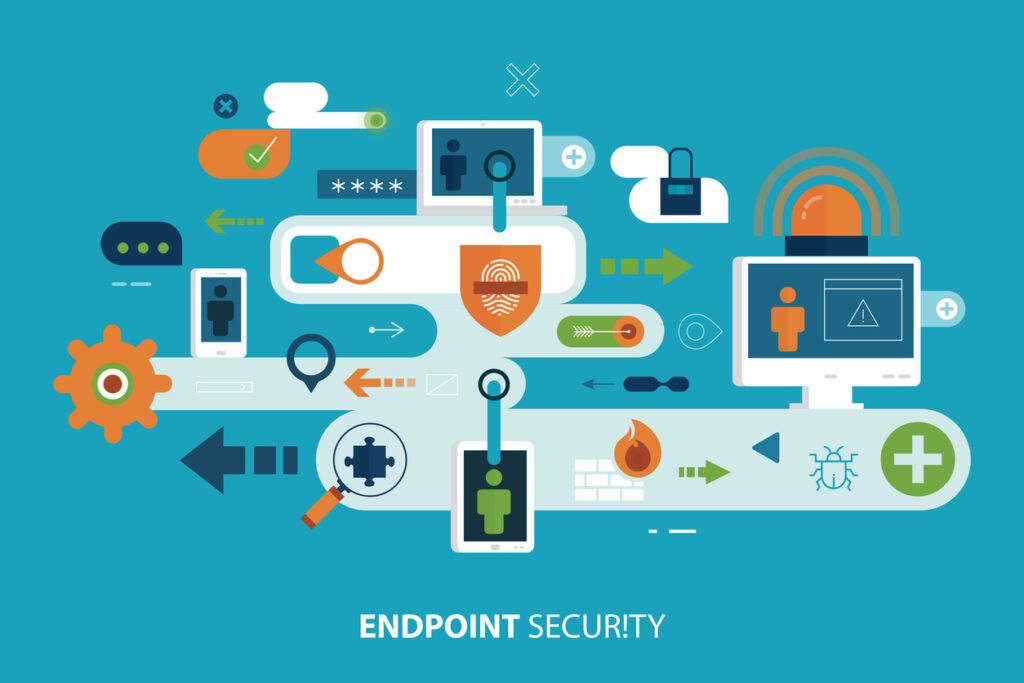Microsoft Defender for Endpoint Licensing: A Comprehensive Guide
Welcome to this simplified guide to Microsoft Defender for Endpoint Licensing You understand Endpoint Securitys importance as an organizations But ...

Welcome to this simplified guide to Microsoft Defender for Endpoint Licensing. You understand Endpoint Security’s importance as an organization’s But do you know what it includes, and how to choose the right licensing plan?
In this post, we will explore what Defender for Endpoint is, what it includes, and how to choose the right Microsoft licensing pathway for your organization. By the end of this post, you will thoroughly understand Defender for Endpoint and be equipped with the knowledge to make informed decisions about endpoint security for your organization.
Why Does End Point Security Matter?
Endpoints, such as laptops, desktops, and mobile devices, are vulnerable to cyber-attacks and can become an entry point for hackers to access a company’s network. Here are some reasons why endpoint security matters:
- Protects Against Cyber Attacks: Endpoint security protects against cyber-attacks, preventing attackers from accessing your network and sensitive data.
- Prevents Data Breaches: Endpoint security helps prevent data breaches by identifying and addressing vulnerabilities and detecting and blocking unauthorized access to sensitive data.
- Ensures Compliance: Endpoint security is critical to ensuring compliance with regulations such as HIPAA, PCI DSS, and GDPR, among others. By implementing GCC High Licensing and endpoint security solutions, organizations can protect their sensitive data, prevent data breaches, and meet strict compliance requirements.
Microsoft Defender for Endpoint Licensing: What is Defender for Endpoint?
Microsoft Defender for Endpoint is a cloud-based security solution that provides advanced endpoint protection to organizations of all sizes. It is designed to protect Windows, macOS, Linux, iOS, and Android devices from various threats, including malware, viruses, phishing, and ransomware attacks.
 Defender for Endpoint combines machine learning, behavioral analytics, and threat intelligence to detect and respond to threats in real-time. It also provides a central dashboard for security administrators to manage and monitor endpoint security across their organization.
Defender for Endpoint combines machine learning, behavioral analytics, and threat intelligence to detect and respond to threats in real-time. It also provides a central dashboard for security administrators to manage and monitor endpoint security across their organization.
Microsoft Defender for Endpoint Licensing: What is Included in Defender for Endpoint?
Defender for Endpoint includes several features that work together to provide robust endpoint security:
1. Endpoint Detection and Response
Defender for Endpoint uses behavioral analysis and machine learning to detect and respond to advanced threats that may surpass the first two security pillars. Advanced hunting provides a query-based threat-hunting tool that lets you proactively find breaches and create custom detections(guided and advanced models)
2. Threat and Vulnerability Management
One of the critical components of Microsoft Defender for Endpoint is Threat and Vulnerability Management. It is a powerful tool that provides a risk-based approach to discovering, prioritizing, and remediating endpoint vulnerabilities and misconfigurations.
This feature allows organizations to assess and address vulnerabilities before malicious actors can exploit them. The configuration score gives you visibility and control over your organization’s security posture based on best practices.
3. Next-Generation Protection
Microsoft Defender for Endpoint offers next-generation protection against advanced threats and attacks. It includes Microsoft Defender Antivirus, a built-in antimalware solution for desktops, portable computers, and servers. This feature provides real-time protection against malware, viruses, and other types of malicious software.
4. Attack Surface Reduction
Attack Surface Reduction is the first line of defense against attacks and ensures that configuration settings are properly set, and mitigation techniques are applied to resist attacks and exploitation. This set of capabilities also includes network protection and web protection, which regulate access to malicious IP addresses, domains, and URLs.
5. Automatic Investigation and Remediation
Automatic Investigation and Remediation is an important feature of Microsoft Defender for Endpoint that can significantly reduce the volume of alerts that need to be investigated. It automates the investigation and remediation of identified security issues, freeing security operations experts to focus on more sophisticated threats and other high-value initiatives.
Not Included: Microsoft Threat Experts
It’s important to note that Microsoft Threat Experts is not included in Microsoft Defender for Endpoint. This managed threat-hunting service provides proactive hunting, prioritization, and additional context and insights to identify and respond to threats quickly.
Defender for Business
Defender for Business is a comprehensive security solution that has been specifically designed to meet the needs of small to medium businesses. Here are some key features of Defender for Business:
- Simplified client configuration
- Includes email and antispam protection
- Has endpoint detection and response, automated investigations and response, and threat analytics(which Defender for Endpoint P1 lacks)
- Can only be applied to a Microsoft 365 Business ( not Enterprise)license
Defender for Vulnerability Management
Defender for Vulnerability Management is a feature in Microsoft Defender for Endpoint P2 that enhances vulnerability management capabilities. This feature:
- Enhances the vulnerability management capabilities in Defender for Endpoint P2.
- Tackles browser extensions and vulnerable applications.
- Assess security baseline, hardware, and firmware.
- Prioritizes vulnerabilities using Microsoft threat intelligence, breach likelihood prediction, business contexts, and device assessments.
Choosing a Microsoft Defender for Endpoint Plan
When choosing a Microsoft Defender for an Endpoint plan, there are several factors to consider:
- Intune: Microsoft Defender for Endpoint relies on Intune for device management. Consider whether you need to manage devices beyond Windows 10, as Intune supports other platforms such as iOS and Android.
- Automation: Microsoft Defender for Endpoint offers both manual and automated response capabilities. Consider the level of automation you require based on your organization’s security needs and resources.
- Microsoft Threat Experts: If you need dedicated security support, consider opting for Microsoft Defender for Endpoint Plan 2, which includes access to Microsoft Threat Experts. These experts provide 24/7 assistance with incident response and threat hunting.
Microsoft Defender for Endpoint Licensing Pathways
Microsoft Defender for Endpoint offers the following licensing pathways:
1. Microsoft Defender for Endpoint P1
- Microsoft defender for Endpoint P1
- Microsoft 365 E3
- Microsoft 365 E5
2. Microsoft Defender P2
- Microsoft Defender P2
- Windows 11 Enterprise E5/A5
- Windows 10 Enterprise E5/A5
- Microsoft 365 E5/A5/G5
- Microsoft 365 E5/A5/G5/F5 Security
- Microsoft 365 F5 Security and compliance
3. Microsoft Defender for Business
- Microsoft Defender for Business
- Microsoft Business Premium
Navigate the Complexities of Defender for Endpoint Licensing With Agile IT
Microsoft Defender for Endpoint is essential to any organization’s endpoint security strategy. It provides advanced threat protection, endpoint detection and response, and vulnerability management.
If you’re looking for a Microsoft licensing partner who can help you navigate the complexities of Defender for Endpoint licensing, Agile IT can help. Our town halls are a benefit for Agile IT’s Microsoft Licensing Customers.
We go beyond simple buy-and-forget-it with expanded service and access to licensing experts to ensure you are never over-licensed or under-protected. Contact us today to find out if you have the right Microsoft licensing for your organization.
Frequently Asked Questions
What is Microsoft Defender for Endpoint?
Microsoft Defender for Endpoint is a cloud-based security solution designed to protect devices such as Windows, macOS, Linux, iOS, and Android from malware, ransomware, phishing, and other threats. It combines machine learning, behavioral analytics, and threat intelligence to detect and respond to threats in real time.
Why is endpoint security important?
Endpoint security is crucial for protection against cyber-attacks, preventing data breaches, and ensuring compliance with regulations like HIPAA, PCI DSS, and GDPR. Effective endpoint security helps organizations secure vulnerable devices and prevent unauthorized access to sensitive data.
What features are included in Defender for Endpoint Plan 1 (P1)?
Plan 1 includes:
Endpoint Detection and Response
Attack Surface Reduction
Next-Generation Protection with Microsoft Defender Antivirus
Automatic Investigation and Remediation
Device and Network Protection
What additional features does Defender for Endpoint Plan 2 (P2) offer?
Plan 2 includes all Plan 1 features plus:
Threat and Vulnerability Management
Advanced Threat Analytics
Microsoft Threat Experts for managed threat hunting and incident response
Enhanced automation capabilities
What is the role of Microsoft Threat Experts in Defender for Endpoint?
Microsoft Threat Experts provide managed threat-hunting services, prioritizing threats and offering insights to identify and respond to them more quickly. This feature is only available in Plan 2
What is Defender for Vulnerability Management in Defender for Endpoint Plan 2?
Defender for Vulnerability Management enhances the ability to identify, prioritize, and address vulnerabilities in endpoint devices, using tools like breach likelihood prediction and business context to assess risks.
What are the licensing pathways available for Defender for Endpoint?
Defender for Endpoint offers:
Plan 1 through Microsoft 365 E3
Plan 2 through Windows 10/11 Enterprise E5 and Microsoft 365 E5/A5/G5
Defender for Business through Microsoft 365 Business Premium
How do I choose the right Defender for Endpoint plan for my organization?
Consider your device management needs (e.g., Intune for managing multiple platforms), required automation levels, and access to Microsoft Threat Experts. Plan 2 is suitable for organizations needing advanced threat hunting and response, while Plan 1 offers essential endpoint security.
Does Defender for Endpoint work with Intune?
Yes, Defender for Endpoint integrates with Intune for device management, allowing security and compliance across various platforms, including iOS and Android.





